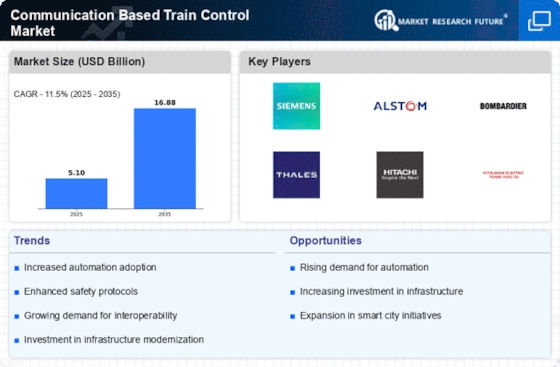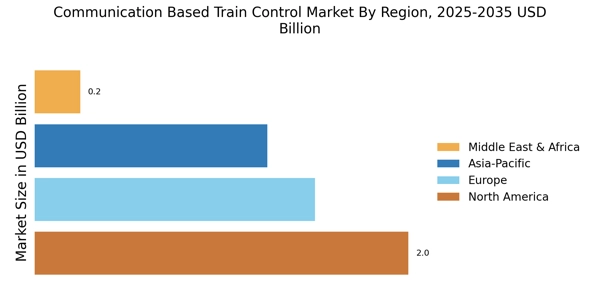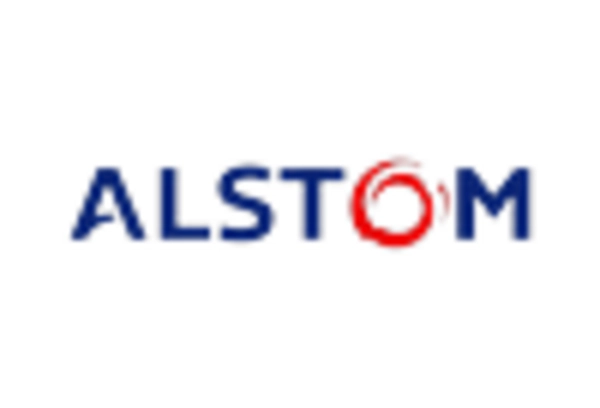Leading market players are investing heavily in research and development in order to expand their product lines, which will help the Communication based train control market, grow even more. Market participants are also undertaking a variety of strategic activities to expand their global footprint, with important market developments including new product launches, contractual agreements, mergers and acquisitions, higher investments, and collaboration with other organizations. To expand and survive in a more competitive and rising market climate, Communication based train control industry must offer cost-effective items.
Manufacturing locally to minimize operational costs is one of the key business tactics used by manufacturers in the global Communication based train control industry to benefit clients and increase the market sector. In recent years, the Communication based train control industry has offered some of the most significant advantages to medicine.
Major players in the CBTC System market, including Alstom (France), Thales Group (France), Wabtec Corporation (U.S.), Mitsubishi Electric (Japan), Hitachi (Japan), Siemens Mobility, Inc (Germany), ABB (Sweden), Argenia Railway Technologies Inc.(Canada), Toshiba (Japan), WAGO Corporation (U.S.) and others, are attempting to increase market demand by investing in research and development operations.
Siemens AG (Siemens) focuses on technology. The automation, digitalization, and electrification fields are all covered by its operations. The company designs, develops, and manufactures goods in addition to installing complex projects and systems. Additionally, it provides a range of uniquely created solutions for various demands. Power generation and delivery, intelligent building infrastructure, and distributed energy systems are Siemens' areas of expertise. It provides medical technology, smart mobility solutions, and digital healthcare services for the road and rail transportation sectors. Siemens maintains locations for its manufacturing plants, distribution centers, and sales offices all around the world.
It offers clients services in a variety of industries, such as manufacturing, infrastructure, process, and energy. Siemens has its headquarters in Munich, Bavaria, Germany.
Thales SA (Thales), which also provides smart technologies, electronic systems, software, ground transportation, services, and equipment, serves the aerospace, defense, and security markets. It provides training solutions, flight avionics, electrical systems, electric systems, and air traffic management systems for the aircraft sector. The company also provides radio communications products, network and infrastructure systems, vital information systems, weapon systems, protection systems, and cybersecurity solutions for the ground, marine, and air defense industries. Thales additionally offers maintenance, repair, and training services. The company operates in the Americas, Europe, the Middle East, Africa, and Asia-Pacific.
Paris, Ile-de-France, France, is home to Thales' main office.

















